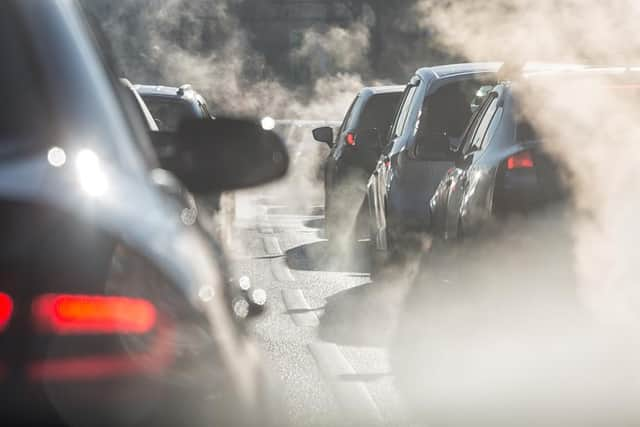Birmingham clean air zone 'will hit poorest drivers hardest'
and live on Freeview channel 276
A new clean air zone that charges drivers £8 a day to enter central Birmingham has been launched amid warnings that it will hit the city’s poorest drivers hardest.
The scheme has been introduced to reduce air pollution in the city centre by charging owners of the most polluting vehicles but the AA has said it is flawed and will most affect young drivers and those on lower incomes.
Advertisement
Hide AdAdvertisement
Hide AdFrom Tuesday, 1 June, drivers of cars, taxis and vans with pre-Euro 4 petrol and pre-Euro 6 diesel engines will have to pay the daily charge to enter the zone, which covers all roads within the A4540 Middleway ring road. Operators of non-compliant coaches, buses and HGVs will be charged £50 for entering the zone.


The zone is controlled by number-plate recognition cameras and will be in operation 24 hours a day, 365 days a year.
Drivers who live within the zone have been offered exemption permits for two years but an estimated 100,000 motorists will be affected, according to the AA.
AA president Edmund King said the scheme and similar ones in London and Bristol would mostly affect drivers who could least afford to pay the daily charges or to replace their vehicle.
Advertisement
Hide AdAdvertisement
Hide AdHe said: "Poor air quality is a threat that the majority of drivers agree needs to be addressed and reduced; in due course electric vehicles will largely eradicate those emissions.


"However, the car CAZs in Bristol and Birmingham and the extended Ultra Low Emission Zone in London are very blunt tools that create a tax burden for low-income families and workers."
Birmingham City Council has set up a £10 million scheme offering £2,000 towards a new vehicle for drivers earning less than £30,000 per year who trade in a non-compliant vehicle.
The AA has suggested a number of measures that should be run alongside clean air zones to help motorists who struggle with daily charges. These include issuing warning letters instead of a fine for the first time a non-compliant car is used in the zone; a "rapid and massive" expansion of park-and-ride schemes and the removal of VAT from new electric vehicle sales.
Advertisement
Hide AdAdvertisement
Hide AdWest Midlands Mayor Andy Street said the region was in the middle of a “climate emergency” and action needed to be taken, including expanding public transport and introducing low emissions vehicles such as hydrogen buses.
He said: "These schemes and our record investment are the carrot to tempt people out of their cars, whilst the CAZ implemented by the city council is arguably the stick.”
Birmingham’s clean air zone was due to be introduced in 2020 but was delayed due to the Covid pandemic and there are concerns around its potential impact on the city’s recovery from lockdown.
Dr Steven McCabe, a regional economist at Birmingham City University, said: "Though exemptions are possible, anything making life more financially challenging to Birmingham's poorest citizens is unwelcome.
Advertisement
Hide AdAdvertisement
Hide Ad"Launching the CAZ whilst the city is still dealing with the fallout of the global pandemic is questionable, particularly for the retail and the night-time economies.
"However, a cleaner Birmingham, especially in the city centre, is undoubtedly one that's far more attractive to inhabitants and visitors."